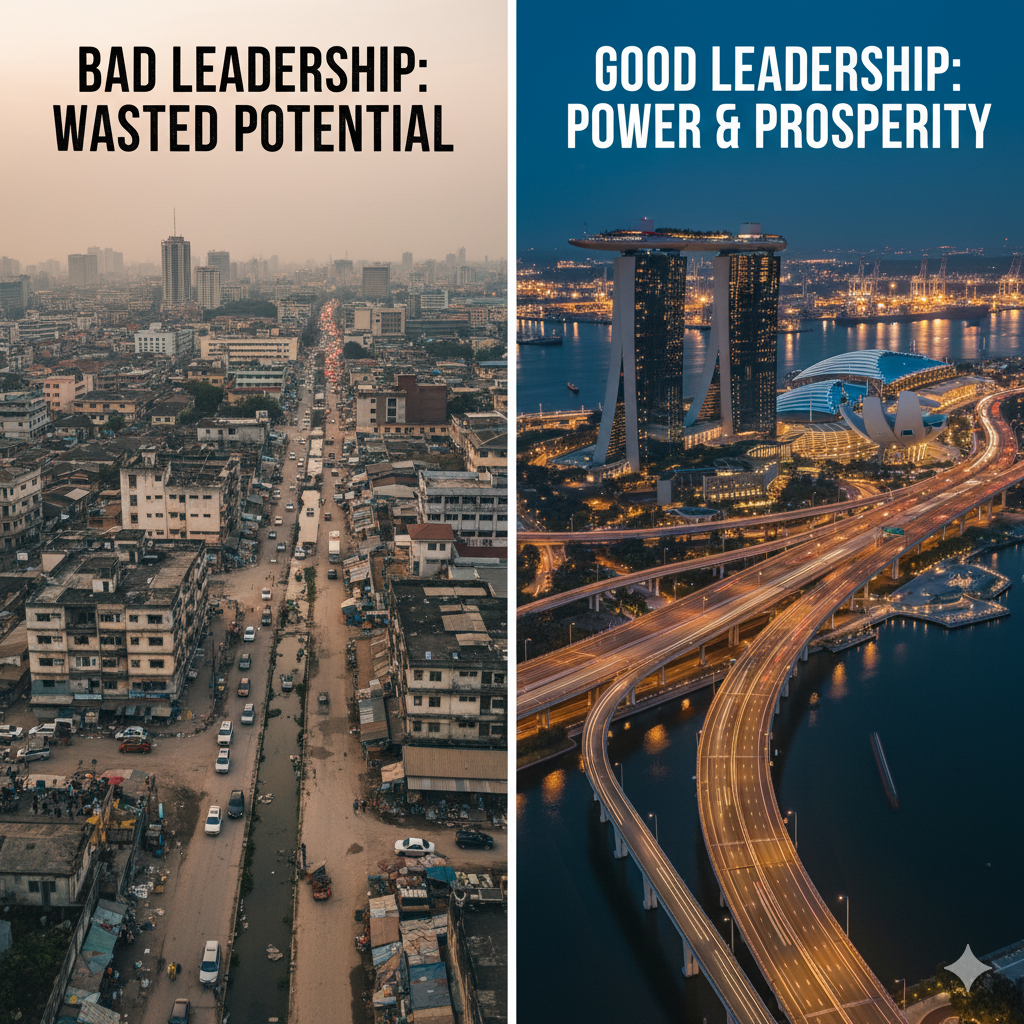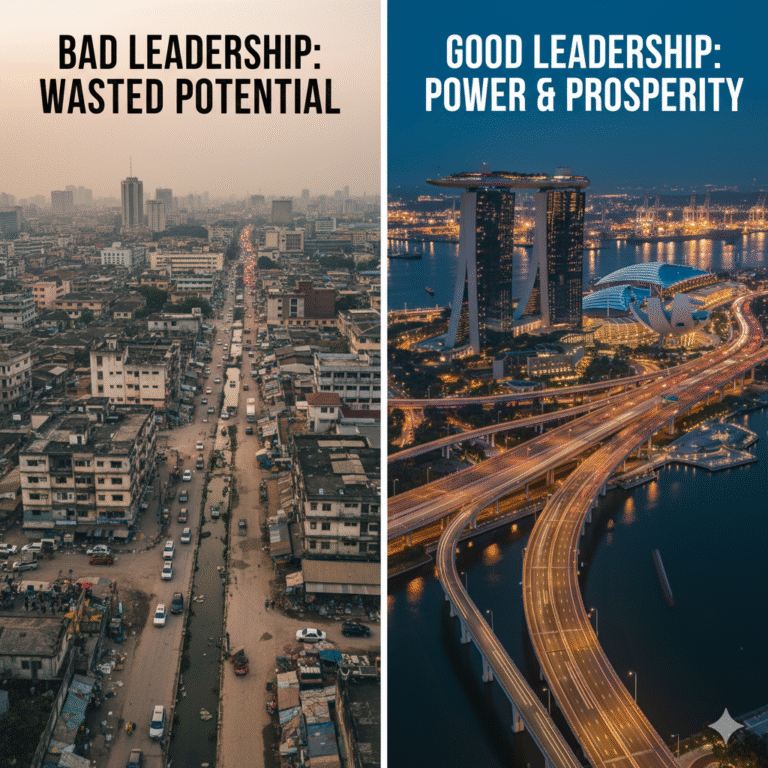
Good leadership turns potential into power. Bad leadership wastes it.
Here’s something that’ll blow your mind.
India exports 23 billion dollars worth of medicines every year. That’s massive, right?
Singapore exports 11 billion dollars worth of medicines annually.
Now here’s the kicker.
India has 1.4 billion people. Singapore has just 5.9 million people.
India is 4,583 times bigger than Singapore in land size. Yet Singapore makes nearly half of what India makes in pharmaceutical exports.
That’s mental when you think about it.
The Numbers Don’t Lie
Let’s break this down properly.
Singapore’s got 237 times fewer people than India. But they’re punching way above their weight in the global medicine trade.
It’s like comparing a heavyweight boxer to a featherweight. Except the featherweight is landing knockout punches.
Per person, Singapore absolutely destroys India in pharmaceutical exports. We’re talking about 1,864 dollars per person in Singapore versus just 16 dollars per person in India.
That’s a 116-fold difference.
Africa Shows the Same Pattern
This isn’t just an Asia thing. Look at Africa and you’ll see the exact same story playing out.
Nigeria has 220 million people. It’s Africa’s giant. But guess what? Egypt, with half the population, will have a bigger pharmaceutical market worth 5.8 billion dollars by 2027.
South Africa leads African medicine exports at 380 million dollars. They’ve got smart regulations that match international standards. Meanwhile, bigger countries struggle with basic quality control.
Kenya beats countries twice its size in pharmaceutical production. How? They positioned themselves as the regional hub. Smart positioning beats big populations every single time.
Size doesn’t guarantee success. Strategy does.
What Singapore Did Right
Singapore didn’t win by accident. They made specific choices that transformed them into a pharmaceutical powerhouse.
First, they built world-class regulations. Their drug approval process matches the FDA and European standards. This means Singapore-made medicines can sell anywhere in the world.
Second, they created pharmaceutical clusters. All the factories, research labs, and logistics companies work in the same industrial parks. This creates magic when companies learn from each other and innovate faster.
Third, they invested heavily in education. They don’t have many people, so they make sure every person is highly skilled.
Fourth, they built incredible infrastructure. Moving medicines around the world requires perfect cold storage and logistics. Singapore nailed this.
These weren’t lucky breaks. These were deliberate strategic decisions.
The Big Country Trap
Big countries often fall into a dangerous trap. They think their size automatically gives them advantages.
“We’ve got 200 million people, so we’ll definitely win at manufacturing.”
Wrong.
Having lots of people only helps if you can organise them properly. Otherwise, a large population becomes a burden, not an asset.
Look at Nigeria again. Massive population, huge domestic market, loads of natural resources. But their pharmaceutical sector lags behind smaller, better-organised countries.
The problem? Weak institutions, poor regulation, and lack of strategic focus.
Population is potential energy. Good leadership converts it to actual energy.
Rwanda’s Miracle
Want proof that small can beat big? Look at Rwanda.
Tiny country with 13 million people. Twenty-nine years ago, they had a genocide that destroyed everything.
Today, Rwanda has better healthcare outcomes than countries ten times their size. Their life expectancy jumped from 48 years in 2000 to 69 years today.
How? Brilliant leadership, clear strategy, and flawless execution.
They didn’t wait until they were “big enough” to succeed. They succeeded first, then grew.
Success creates scale, not the other way around.
Morocco’s Smart Play
Morocco shows another winning strategy. They’ve got 37 million people, not huge by African standards.
But they positioned themselves as the gateway between Europe and Africa. They signed trade deals, built modern factories, and attracted European pharmaceutical companies.
Now Morocco exports medicines across Africa and into European markets. They turned their geographic position into a competitive advantage.
Geography is destiny only if you make it destiny.
The Real Secret
Here’s what the data really tells us: in today’s world, being smart beats being big.
The countries winning at high-value industries like pharmaceuticals share common traits. Excellent regulations, strategic thinking, world-class infrastructure, and highly skilled people.
They don’t waste time complaining about being small. They focus on being brilliant at what matters.
Singapore could have said, “We’re too small to compete with India in manufacturing.” Instead, they said, “We’ll be so good that size won’t matter.”
That’s the difference between winners and everyone else.
The African Opportunity
Africa’s total pharmaceutical market is worth 27.6 billion dollars in 2024 and will grow to 37 billion dollars by 2033. Most medicines are still imported, representing a massive opportunity for local production.
The continent has everything needed for pharmaceutical success: a young population, growing markets, and increasing investment.
But success will go to countries that copy Singapore’s playbook, not India’s.
Focus on quality, not quantity. Build institutions, not just factories. Think strategically, not just hopefully.
The future belongs to the strategic, not the massive.
Your Takeaway
Whether you’re running a business, leading a team, or planning your career, the lesson is crystal clear.
Excellence beats scale. Strategy beats size. Execution beats everything.
Don’t wait until you’re big enough, rich enough, or old enough to start winning. Start winning now, with whatever you’ve got.
The best time to be brilliant was twenty years ago. The second-best time is right now.



